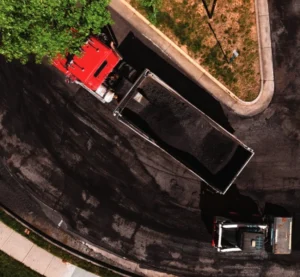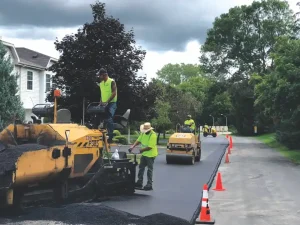Recycled asphalt, often derived from reclaimed pavement materials, has gained prominence due to its commendable environmental profile and cost-effectiveness. Its reuse not only mitigates the environmental impact of traditional asphalt disposal but also aligns with the global shift towards sustainable construction practices. There are several key points to consider that make recycled asphalt an attractive and innovative material for use in both construction and landscaping projects.
Advantages of Using Recycled Asphalt
Recycled asphalt presents a two-fold advantage, addressing environmental concerns while offering a cost-effective alternative. The process of recycling asphalt reduces the demand for new raw materials, decreasing the carbon footprint associated with asphalt production. The integration of recycled asphalt also minimizes the need for virgin aggregates and asphalt binder, conserving natural resources and reducing energy consumption. This practice significantly lowers greenhouse gas emissions, making it a pivotal strategy in the battle against climate change.
In construction and landscaping projects, cost considerations often play a decisive role. Recycled asphalt proves to be economically advantageous, as it provides a reliable material at a fraction of the cost of newly produced asphalt. This affordability makes it an attractive option for both large-scale infrastructure projects as well as smaller residential endeavors.
Incorporating Recycled Asphalt in Road Construction
One of the primary benefits of incorporating recycled asphalt in road construction lies in its enhanced durability and performance. The binding properties of recycled asphalt contribute to the structural integrity of road surfaces, resulting in surfaces that withstand heavy traffic loads and adverse weather conditions.
Recycled asphalt possesses unique binding properties that enhance its cohesion and strength when combined with aggregates. This ensures a robust road surface that is less prone to cracking and deformation, prolonging the lifespan of the pavement.
The resilience of recycled asphalt against weathering and erosion further solidifies its position as a sustainable construction material. The recycled content reinforces the pavement’s resistance to the damaging effects of rain, UV radiation, and fluctuating temperatures, reducing maintenance needs and lifecycle costs.
Landscaping with Recycled Asphalt
In landscaping, the use of recycled asphalt extends beyond traditional construction, offering sustainable hardscaping solutions. Its versatility in design allows for innovative landscaping features, from driveways to walkways and outdoor patios.
Recycled asphalt’s malleability facilitates creative landscaping designs, enabling architects and designers to craft distinctive outdoor spaces. Its adaptive nature allows for the incorporation of curves and angles, providing an aesthetic appeal that goes beyond the conventional use of materials.
Landscaping with recycled asphalt aligns with the broader trend of environmentally conscious design. The utilization of recycled materials not only reduces the environmental impact but also sends a powerful message about responsible resource management in landscaping practices.
Final Thoughts
The innovative uses of recycled asphalt in construction and landscaping represent a paradigm shift towards sustainable practices. As the industry continues to evolve, the integration of recycled materials not only addresses environmental concerns but also establishes a foundation for resilient and cost-effective infrastructure development.
Contact the Experts at Pro-Pave for All Your Paving Needs
The experts at Pro-Pave are specially trained to provide the very best in quality paving for your home or business. Our process is efficient, ensuring that we minimize disruptions to your everyday life while ensuring the safety of those on or near the job site.
If you have a new paving project, don’t wait – contact our team at (703) 433-9500 or fill out our online contact us form to get a free quote or evaluation!



